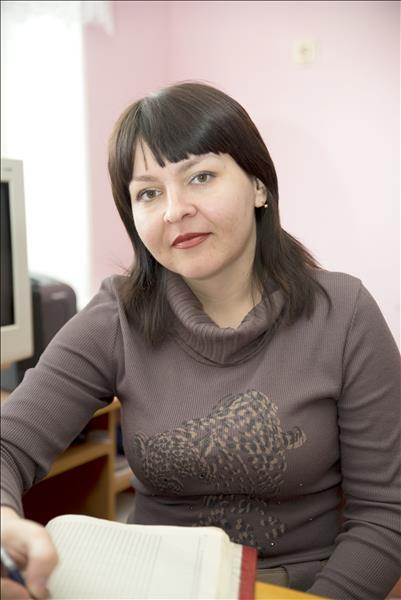

The Theme: My favourite season

What seasons do you know?

Today at the lesson …
We (to read) about seasons in English.
We (to listen) to the text about favourite seasons in English.
We (to read) a poem about the weather in English.
We (to speak) English about the seasons we like.
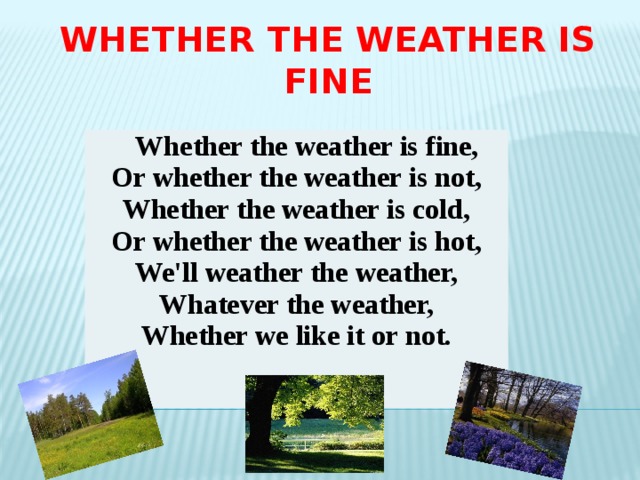
Whether the weather is fine
Whether the weather is fine,
Or whether the weather is not,
Whether the weather is cold,
Or whether the weather is hot,
We'll weather the weather,
Whatever the weather,
Whether we like it or not.

What is your favourite season? Why do you like it?
spring
summer
autumn
winter
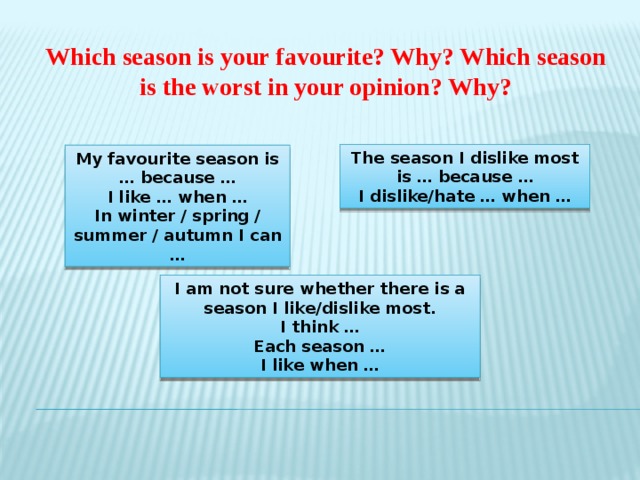
Which season is your favourite? Why? Which season is the worst in your opinion? Why?
The season I dislike most is … because …
I dislike/hate … when …
My favourite season is … because …
I like … when …
In winter / spring / summer / autumn I can …
I am not sure whether there is a season I like/dislike most.
I think …
Each season …
I like when …
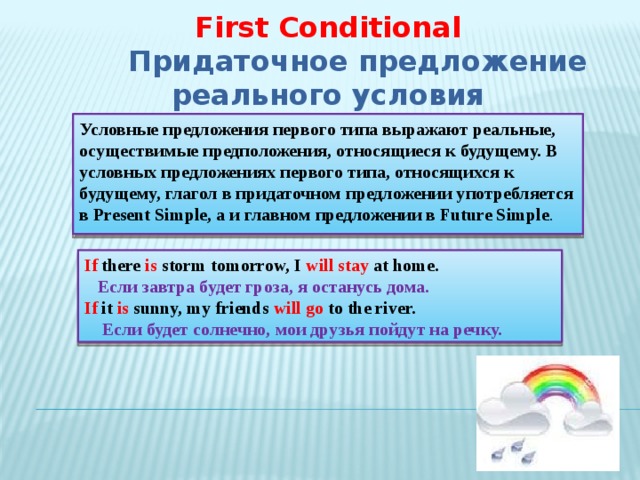
First Conditional Придаточное предложение реального условия
Условные предложения первого типа выражают реальные, осуществимые предположения, относящиеся к будущему. В условных предложениях первого типа, относящихся к будущему, глагол в придаточном предложении употребляется в Present Simple, a и главном предложении в Future Simple .
If there is storm tomorrow, I will stay at home.
Если завтра будет гроза, я останусь дома.
If it is sunny, my friends will go to the river.
Если будет солнечно, мои друзья пойдут на речку.

Match two parts of the sentences.
… my friends and I will go for a walk.
… my father will fish.
… I’ll put on warm clothes.
… I won’t cycle in the street.
… my friend and I will go to the beach.
… my father won’t drive the car.
… we’ll play hockey.
… I won’t watch TV.
… I’ll make a snowman in the park.
… I’ll stay at home and listen to the music.
If the weather is fine …
If it is snowy and frosty tomorrow …
If there is rain tomorrow …
If it is clear up tomorrow …
If there is fog …
If the weather is dreadful …
If it is warm and sunny …
If there is snow tomorrow …
If it freezes tomorrow …
If there is storm …
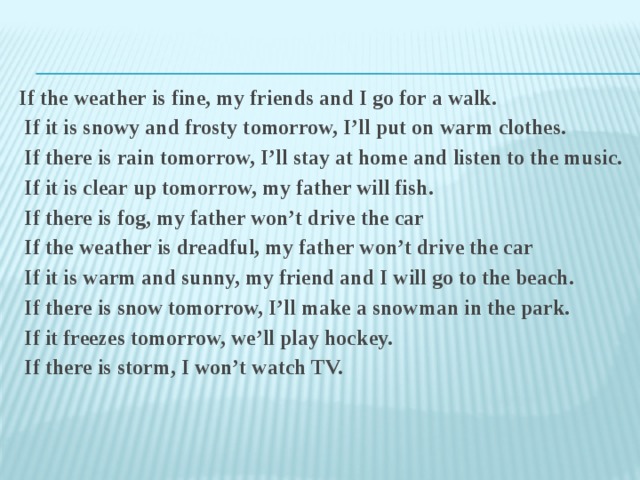
If the weather is fine, my friends and I go for a walk.
If it is snowy and frosty tomorrow, I’ll put on warm clothes.
If there is rain tomorrow, I’ll stay at home and listen to the music.
If it is clear up tomorrow, my father will fish.
If there is fog, my father won’t drive the car
If the weather is dreadful, my father won’t drive the car
If it is warm and sunny, my friend and I will go to the beach.
If there is snow tomorrow, I’ll make a snowman in the park.
If it freezes tomorrow, we’ll play hockey.
If there is storm, I won’t watch TV.

Homework
AB ex.1,p.92(write an e-mail to your friend about your favourite season)





